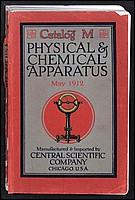
Telemarketing is a method of direct marketing in which a salesperson solicits prospective customers to buy products, subscriptions or services, either over the phone or through a subsequent face to face or web conferencing appointment scheduled during the call. Telemarketing can also include recorded sales pitches programmed to be played over the phone via automatic dialing.

Retail is the sale of goods and services to consumers, in contrast to wholesaling, which is sale to business or institutional customers. A retailer purchases goods in large quantities from manufacturers, directly or through a wholesaler, and then sells in smaller quantities to consumers for a profit. Retailers are the final link in the supply chain from producers to consumers.
In the United States government, independent agencies are agencies that exist outside the federal executive departments and the Executive Office of the President. In a narrower sense, the term refers only to those independent agencies that, while considered part of the executive branch, have regulatory or rulemaking authority and are insulated from presidential control, usually because the president's power to dismiss the agency head or a member is limited.

Pricing is the process whereby a business sets the price at which it will sell its products and services, and may be part of the business's marketing plan. In setting prices, the business will take into account the price at which it could acquire the goods, the manufacturing cost, the marketplace, competition, market condition, brand, and quality of product.
The subscription business model is a business model in which a customer must pay a recurring price at regular intervals for access to a product or service. The model was pioneered by publishers of books and periodicals in the 17th century, and is now used by many businesses, websites and even pharmaceutical companies in partnership with governments.

Direct marketing is a form of communicating an offer, where organizations communicate directly to a pre-selected customer and supply a method for a direct response. Among practitioners, it is also known as direct response marketing. In contrast to direct marketing, advertising is more of a mass-message nature.

Advertising mail, also known as direct mail, junk mail, mailshot or admail, letterbox drop or letterboxing (Australia), is the delivery of advertising material to recipients of postal mail. The delivery of advertising mail forms a large and growing service for many postal services, and direct-mail marketing forms a significant portion of the direct marketing industry. Some organizations attempt to help people opt out of receiving advertising mail, in many cases motivated by a concern over its negative environmental impact.
Email marketing is the act of sending a commercial message, typically to a group of people, using email. In its broadest sense, every email sent to a potential or current customer could be considered email marketing. It involves using email to send advertisements, request business, or solicit sales or donations. Email marketing strategies commonly seek to achieve one or more of three primary objectives: build loyalty, trust, or brand awareness. The term usually refers to sending email messages with the purpose of enhancing a merchant's relationship with current or previous customers, encouraging customer loyalty and repeat business, acquiring new customers or convincing current customers to purchase something immediately, and sharing third-party ads.

Online shopping is a form of electronic commerce which allows consumers to directly buy goods or services from a seller over the Internet using a web browser or a mobile app. Consumers find a product of interest by visiting the website of the retailer directly or by searching among alternative vendors using a shopping search engine, which displays the same product's availability and pricing at different e-retailers. As of 2020, customers can shop online using a range of different computers and devices, including desktop computers, laptops, tablet computers and smartphones.

Mail order is the buying of goods or services by mail delivery. The buyer places an order for the desired products with the merchant through some remote methods such as:
The Internet Service Providers Association (ISPA) is a British body representing providers of Internet services.

Digital marketing is the component of marketing that uses the Internet and online-based digital technologies such as desktop computers, mobile phones, and other digital media and platforms to promote products and services. Its development during the 1990s and 2000s changed the way brands and businesses use technology for marketing. As digital platforms became increasingly incorporated into marketing plans and everyday life, and as people increasingly used digital devices instead of visiting physical shops, digital marketing campaigns have become prevalent, employing combinations of search engine optimization (SEO), search engine marketing (SEM), content marketing, influencer marketing, content automation, campaign marketing, data-driven marketing, e-commerce marketing, social media marketing, social media optimization, e-mail direct marketing, display advertising, e-books, and optical disks and games have become commonplace. Digital marketing extends to non-Internet channels that provide digital media, such as television, mobile phones, callbacks, and on-hold mobile ringtones. The extension to non-Internet channels differentiates digital marketing from online marketing.
A marketing channel consists of the people, organizations, and activities necessary to transfer the ownership of goods from the point of production to the point of consumption. It is the way products get to the end-user, the consumer; and is also known as a distribution channel. A marketing channel is a useful tool for management, and is crucial to creating an effective and well-planned marketing strategy.
Direct-to-consumer (DTC) or business-to-consumer (B2C) is the business model of selling products directly to customers and thereby bypassing any third-party retailers, wholesalers, or middlemen. Direct-to-consumer sales are usually transacted online, but direct-to-consumer brands may also operate physical retail spaces as a complement to their main e-commerce platform in a clicks-and-mortar business model. In the year 2021, direct-to-customer e-commerce sales in the United States were over $128 Billion.
The Internet in Zimbabwe has seen rapid expansion in recent years. The Internet country code top-level domain is .zw. In 2009, the Mugabe-Tsvangirai Government of National Unity established a Ministry of Information and Communications Technology to focus on ICT growth and development.

Content marketing is a form of marketing focused on creating, publishing, and distributing content for a targeted audience online. It is often used by businesses in order to achieve the following goals: attract attention and generate leads, expand their customer base, generate or increase online sales, increase brand awareness or credibility, and engage an online community of users. Content marketing attracts new customers by creating and sharing valuable free content as well as by helping companies create sustainable brand loyalty, providing valuable information to consumers, and creating a willingness to purchase products from the company in the future.
Omnichannel is a neologism describing a business strategy. According to Frost & Sullivan, omnichannel is defined as "seamless and effortless, high-quality customer experiences that occur within and between contact channels".

The Marketplace Fairness Act was a proposed legislation pending in the United States Congress that would enable state governments to collect sales taxes and use taxes from remote retailers with no physical presence in their state.

Edie Rodriguez is an American businesswoman and travel industry executive. She has held executive or board member positions with a number of travel industry corporations, especially in the area of cruise lines and luxury products.
AmeriMark Direct was an American privately held mail order and direct marketing company founded in 1969 and based in Cleveland, Ohio, United States. It operated 10 catalogs and 7 websites and specialized in ladies apparel, shoes, jewelry and accessories, perfumes, fragrances and cosmetics, diet and weight loss, personal care products, As Seen on TV products and housewares. The company had about $400 million in annual revenue and employed 700 in the Cleveland suburbs of Middleburg Heights, Ohio and Berea, Ohio. The company was a member of the American Catalog Mailers Association.










